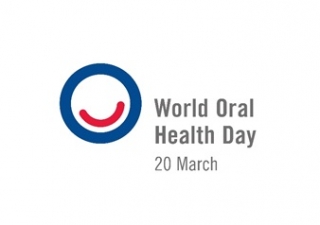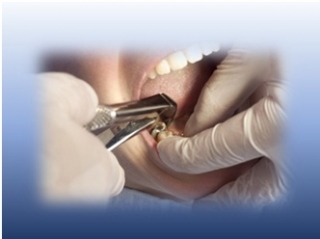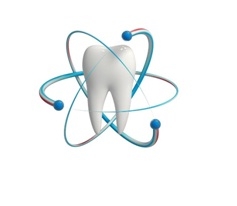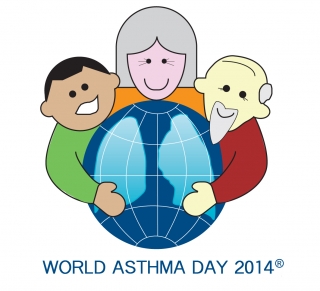‘Hereditary & Familial Breast Cancer’
Increasingly we find many cancers with familial associations.
Cancers which run in the family could have certain common factors like environmental
factor,Diet, lifestyle similarities besides the most important factor i.e.‘Genes’.
Hereditary breast cancer is cancer that may be caused by an altered gene that is
passed -on in a family.
Most of breast cancers occur in individuals with no family history of breast cancer (i.e., their cancer is considered sporadic). But nearly 10% of breast cancer cases are thought to be hereditary. Today, researchers know that hereditary breast cancer is associated with mutations (permanent alterations or changes) in two genes, BRCA1 and BRCA2.Together, mutations in these genes account for about 50% of inherited breast cancer. Scientists continue to look for other genes associated with increased breast cancer risk like PTEN, p53 etc.
Cancers which run in the family could have certain common factors like environmental
factor,Diet, lifestyle similarities besides the most important factor i.e.‘Genes’.
Hereditary breast cancer is cancer that may be caused by an altered gene that is
passed -on in a family.
Most of breast cancers occur in individuals with no family history of breast cancer (i.e., their cancer is considered sporadic). But nearly 10% of breast cancer cases are thought to be hereditary. Today, researchers know that hereditary breast cancer is associated with mutations (permanent alterations or changes) in two genes, BRCA1 and BRCA2.Together, mutations in these genes account for about 50% of inherited breast cancer. Scientists continue to look for other genes associated with increased breast cancer risk like PTEN, p53 etc.
In families with hereditary breast cancer, each child of a parent who carries a breast cancer gene mutation has a 50% chance of inheriting the mutated gene. A person who inherits an altered gene has a much higher risk of developing breast cancer than people in the general population. An average woman has about 12% chance of developing breast cancer during her entire lifetime. Women who carry a BRCA1 or BRCA2 mutation have a 50-85% lifetime risk of developing breast cancer and a 10% to 60% lifetime risk of developing ovarian cancer. Men who carry a BRCA1 or BRCA2 mutation also have an elevated risk of breast cancer (besides certain other cancers like pancreas and prostate), though not as high as women.
Look for These Clues:
Family history is an important risk factor for hereditary breast cancer.
When reviewing your family history, it is important to consider both your father’s and your mother’s side of the family since an altered gene can be inherited from either parent.
Gather information on all types of cancer because other cancers can be associated with hereditary breast cancer.
Certain “red flags” may suggest a higher risk for hereditary breast cancer.
These include:
• Breast cancer diagnosis before age 50
• Breast cancer in multiple relatives on either the mother’s or
father’s side of the family
• Breast and ovarian cancer in the same person
• Bilateral breast cancer (cancer in both breasts)
• Ovarian cancer at any age
• Male breast cancer
•Jewish ancestry with a family history of breast or ovarian cancer
• A relative with a positive genetic test for BRCA1 or BRCA2.
Look for These Clues:
Family history is an important risk factor for hereditary breast cancer.
When reviewing your family history, it is important to consider both your father’s and your mother’s side of the family since an altered gene can be inherited from either parent.
Gather information on all types of cancer because other cancers can be associated with hereditary breast cancer.
Certain “red flags” may suggest a higher risk for hereditary breast cancer.
These include:
• Breast cancer diagnosis before age 50
• Breast cancer in multiple relatives on either the mother’s or
father’s side of the family
• Breast and ovarian cancer in the same person
• Bilateral breast cancer (cancer in both breasts)
• Ovarian cancer at any age
• Male breast cancer
•Jewish ancestry with a family history of breast or ovarian cancer
• A relative with a positive genetic test for BRCA1 or BRCA2.
What Can you Do?
*Talk with your health care provider about options for prevention, screening, genetic counseling and genetic testing. Consult a trained oncologist.
*If you have a family history of breast cancer, more frequent screening examinations are recommended, including clinical and self-breast exams and mammograms, beginning at an earlier age than recommended for the general population (usually 5 to 10 years before the earliest age of breast or ovarian cancer diagnosis in a family). Certain medical and/or surgical options may reduce breast cancer risk.
*Genetic counseling and genetic testing for mutations in BRCA1, BRCA2 ;also p53 and PTEN mutations are currently available. Genetic counselors interpret information about genetic diseases or disorders, analyze inheritance patterns and risks of occurrence, identify high-risk family members, and review available options for prevention, screening, genetic testing, and treatment.
*Talk with your health care provider about options for prevention, screening, genetic counseling and genetic testing. Consult a trained oncologist.
*If you have a family history of breast cancer, more frequent screening examinations are recommended, including clinical and self-breast exams and mammograms, beginning at an earlier age than recommended for the general population (usually 5 to 10 years before the earliest age of breast or ovarian cancer diagnosis in a family). Certain medical and/or surgical options may reduce breast cancer risk.
*Genetic counseling and genetic testing for mutations in BRCA1, BRCA2 ;also p53 and PTEN mutations are currently available. Genetic counselors interpret information about genetic diseases or disorders, analyze inheritance patterns and risks of occurrence, identify high-risk family members, and review available options for prevention, screening, genetic testing, and treatment.



















